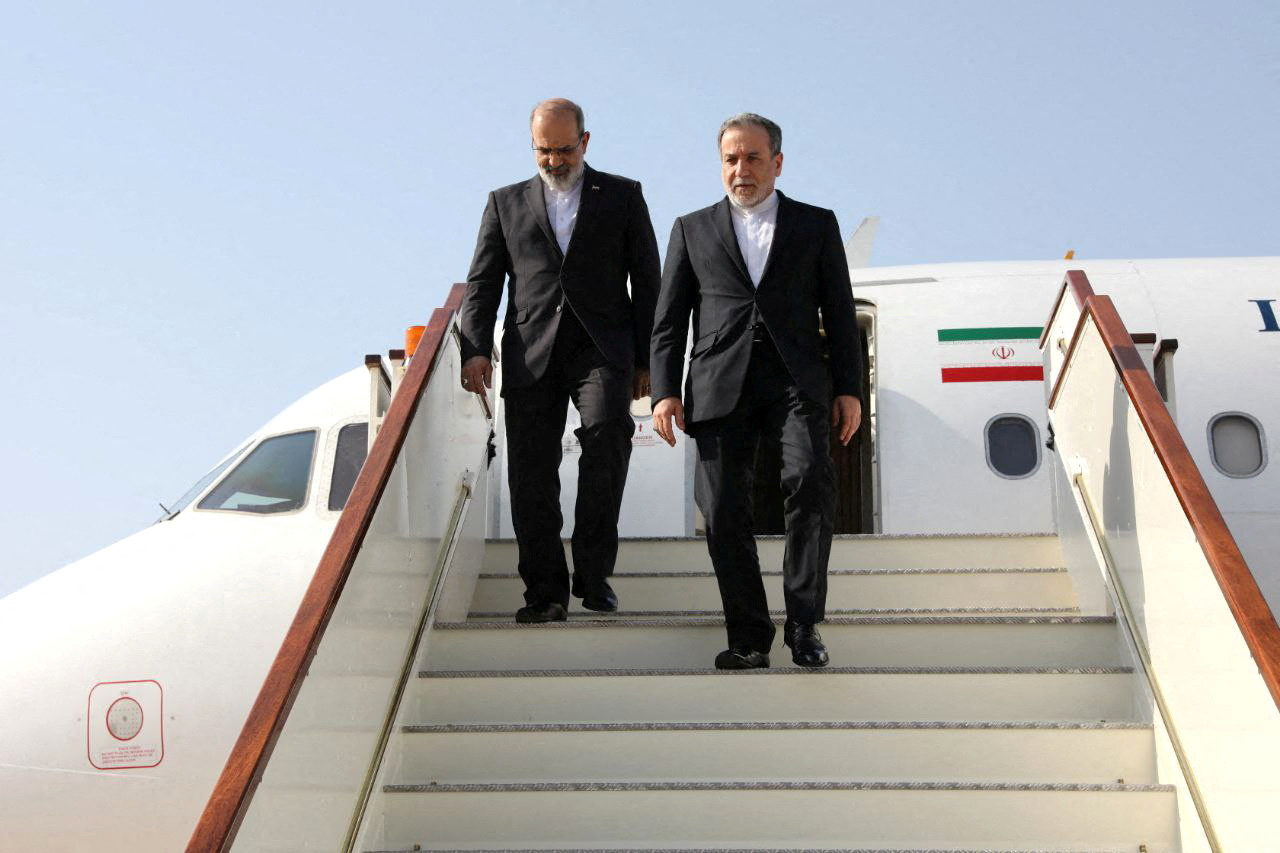Why USIran nuclear talks in Oman have stalled

For the last three Saturdays in a row, negotiators from the US and Iran have met in Oman to engage in talks not seen since the Obama administration.
Iran is seeking sanctions relief, while the US is looking to halt Iran's uranium enrichment, given Israel's fear, in particular, that the Islamic Republic is seeking a nuclear weapon.
The scheduled 3 May meeting, however, has now been scrapped.
"Together with Omani and US interlocutors, we have decided to postpone the 4th round of talks for logistical and technical reasons," Iranian Foreign Minister Abbas Araghchi said on X on Thursday.
"On Iran's part, there is no change in our determination to secure a negotiated solution... Iran's nuclear program will forever remain peaceful while ensuring that Iranian rights are fully respected," he added.
New MEE newsletter: Jerusalem Dispatch
Sign up to get the latest insights and analysis on Israel-Palestine, alongside Turkey Unpacked and other MEE newsletters
Washington, however, disputed the idea that a meeting was ever planned in the first place.
"The United States was never confirmed to participate in a fourth round of talks anywhere," State Department spokesperson Tammy Bruce told reporters on Thursday in response to Araghchi's post.
"The timing and venue there could be one in that it would take place in the near future, but we won't discuss the where or the when," she said.
The tactics and tenor adopted by the US in recent days likely led to this moment.
"I think there are some real troubling indications accompanying the postponement of negotiations. Reports from Iran indicate that it may not just be logistical hurdles, but a shift in the American position that has led to a delay," Ryan Costello, policy director for the National Iranian American Council (NIAC), told Middle East Eye.
Maximum pressure
Earlier this week, the US sanctioned four sellers of Iranian petrochemicals and one buyer "who have generated hundreds of millions of dollars in illicit funds for Iran’s destabilizing activities", the announcement said.
On Thursday, President Donald Trump took to his TruthSocial platform with this message: "ALERT: All purchases of Iranian Oil, or Petrochemical products, must stop, NOW! Any Country or person who buys ANY AMOUNT of OIL or PETROCHEMICALS from Iran will be subject to, immediately, Secondary Sanctions. They will not be allowed to do business with the United States of America in any way, shape, or form."
On Friday, Secretary of Defence Pete Hegseth wrote on X: "Message to IRAN: We see your LETHAL support to The Houthis. We know exactly what you are doing. You know very well what the U.S. Military is capable of — and you were warned. You will pay the CONSEQUENCE at the time and place of our choosing."
For 49 consecutive days, the US has bombed more than 1,000 sites in Yemen, as it targets the Houthis for their naval blockade in the Red Sea, which they say is in response to Israel's continuing war on Gaza.
Still, it was unclear what the timing of Hegseth's post signified, but he is coming under mounting criticism, given some recent lapses in national security protocol. He may very well be playing the bad cop routine, which Trump frequently adopts in public, for the domestic optics.
In private, Trump was the one who sought to initiate the talks by sending a letter to Iran's Supreme Leader Ayatollah Ali Khamenei.
And on the ground, Trump's so-called "envoy to everything" Steve Witkoff has previously spoken more about "verification" measures in terms of Iran's nuclear programme rather than adopting a maximalist approach, which could drive Tehran away and scuttle the chances of a Trump-branded deal.
But to confuse matters further, Witkoff shared Hegseth's post on Friday.
"There is connective tissue between sanctions, diplomacy, and military options. The United States is using the full foreign policy toolbox to counter the Islamic Republic’s threat," Khosro Isfahani, a research fellow with the National Union For Democracy in Iran, told MEE.
Going nuclear
In Iran, to a domestic and regional audience, the quasi-direct talks with Washington mean recognition and legitimacy at a time when its allies, Hezbollah and Bashar al-Assad, have been largely neutralised.
Isfahani said Tehran may have sought to get away with too much for too little.
"The Islamic Republic entered the talks with the illusion that it could dupe the United States into rubber-stamping another bad deal, a JCPOA 2.0, without making any meaningful concessions," he told MEE.
The JCPOA is the Joint Comprehensive Plan of Action, commonly known as the Obama-negotiated 2015 Iran nuclear deal that Trump withdrew from in 2018.
Last month, Araghchi said the JCPOA is "no longer good for us" and "[Trump] does not want another JCPOA either."
Iran is second only to Russia in facing down crippling US sanctions. It has long maintained that it does not seek a nuclear bomb, with Khamenei saying in 2019 that such weapons are "forbidden under Islamic law".
But Iran is also currently enriching uranium to the 60 percent threshold, just short of weapons grade, including by using advanced centrifuge designs at the deeply-buried Fordow enrichment facility, a fact sheet from NIAC showed.
On Friday, Secretary of State Marco Rubio reiterated the demand that Iran give up all enrichment for any purpose.
"This is an approach that has failed dating back to the Bush-Cheney administration," Costello told MEE.
"If that’s just posturing, talks will probably proceed and move forward. But if it is the US bottom line, war is more likely than a deal, and the road ahead will be very rocky."
middleeasteye.net